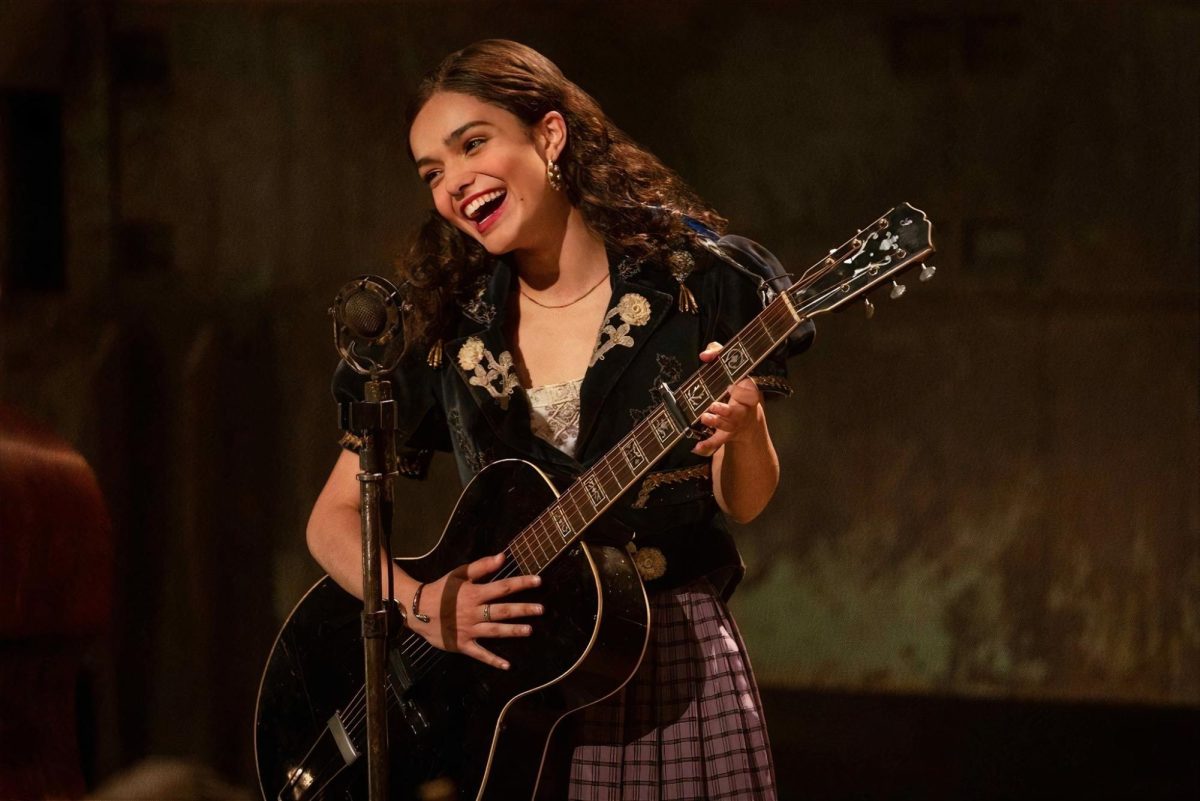Francis Lawrence’s “The Hunger Games: The Ballad of Song Birds and Snakes,” – released on Nov. 17, 2023 – depicts the backstory of Coriolanus Snow (Tom Blyth), before his notorious role as the President of Panem. The prequel’s opening weekend earned the film a staggering $44 million in North America, for a total of $98.5 million worldwide. The first shot depicts Coriolanus and his cousin Tigris (Hunter Schafer) hungry and running for cover in the streets of a post-war Panem, which sets the tone of desperation for his character.
Cut into 3 Parts, “Part I: The Mentor”, “Part II: The Prize”, and “Part III: The Peacekeeper.”, the film focuses on the stages of Corilanus’s character development. Going back about 64 years from the original The Hunger Games movie, the weeks before the 10th annual Hunger Games find the citizens of the capitol eagerly awaiting the event. Those who’ve watched the original trilogy would likely recognize the name Lucky Flickerman (Jason Schwartzman), as an ancestor of the beloved Caesar Flickerman (Stanley Tucci), who hosts a live viewing of the event annually. He along with Head Gamemaker Dr. Volumnia Gaul (Viola Davis), aims to make the Hunger Games a spectacle to behold, regardless of the cost to its tributes.
Wanting to truly belong amongst the Capitol’s affluent residents, Snow must ace his final project, despite Dean Casca Highbottom’s (Peter Dinklage) disdain. To succeed, he needed to boost the ratings and viewership of the games. Luckily for him, he was assigned to Lucy Gray Baird (Rachel Zegler), a natural show-woman with a captivating voice from District 12. Lucy Gray, quickly becomes a Capitol favorite, thanks to her musical talent. Screenwriters Michael Arndt and Michel Leslie wisely utilized Zegler’s Broadway background, to have her deliver powerful ballads with an iconic Dolly Parton-esque twang, of course.
Director Francis Lawrence offers a great adaptation of the original book, written by Suzanne Collins, but does leave out one detail in the book that could explain a lot. The destruction of the 10th Hunger Games tapes could explain how Snow aimed to hide his “weakness” in his past. As Older Snow said, “It’s the things we love most, that destroy us,” which explains the bittersweet nature of how his love for Lucy Gray did hold him back from reaching his full potential.
Overall, the symbolism in the movie does give a sufficient explanation of the plot via extended metaphor, in the form of songbirds and snakes, of course. While the “songbird” refers back to Lucy Gray (for obvious reasons), the “snake” refers to Snow, for his manipulative personality. The name Lucy Gray itself is an allusion to a poem written by William Wordsworth in 1799. It centers on a girl who entered a snowstorm to never make it out alive, which parallels the purposefully ambiguous ending and the recurring theme that Lucy Gray was never supposed to make it this far.
After what may or may not be Lucy Gray running between the trees in her rainbow dress, we are left with the scene of Snow standing in the middle of the forest, disoriented and seething with rage. However, since Snow last saw Lucy Gray leaving in a plain white dress, and the camera shots are tunneling and swaying, we know that he might not be a very reliable narrator. Finally, the haunting sound of Lucy Gray’s voice reverberates throughout the forest (echoed by Mockingjays) singing the iconic “Hanging Tree” song.
Cueing the credits now, I was in awe as the immersive backstory of Snow displayed how the separate works in the Hunger Games Universe tie in together. With the musical numbers featuring that of the talented Zegler, as well as the end credits music by Olivia Rodrigo, it truly did create a memorable experience. My favorite part was when Lucy Gray sang “The Old Therebefore” as the snakes coiled around her.
Paired with the expressive acting from the entire cast, the plot’s flow made it unique in comparison to the previous Hunger Games movies. Overall, the plot seemed to be more focused on the point that Snow didn’t start as a tyrant, but he did always feel the need to do whatever it took to win, afterall, “Snow always lands on top.”


